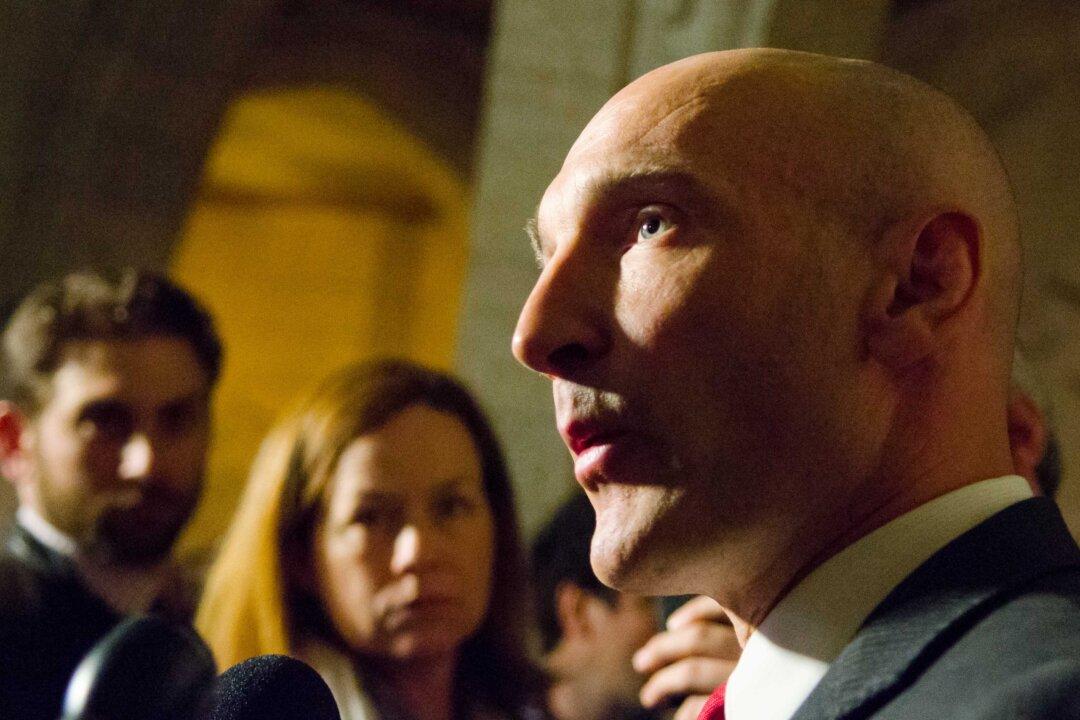PARLIAMENT HILL—Doctors don’t like it when people punch each other in the head.
It’s not brain surgery, but it gets controversial when one of the fastest-growing sports in Canada is based on that premise and fills stadiums in multi-million dollar events that are officially illegal.
Now the government is set to update the criminal code so mixed martial arts (MMA) fights can take place legally. Despite the largest Ultimate Fighting Championship events having taken place in Canada, MMA bouts are currently illegal under an almost 80-year-old provision in the criminal code.
Popular as it may be, however, MMA fights have some noteworthy detractors—doctors. The Canadian Medical Association (CMA), the national advocacy group for physicians, has called for a ban of the bouts, with the former president describing them as “savage and brutal” and current CMA president Anna Reid comparing them to barroom brawls.
Reid faced a largely oppositional parliamentary committee Monday and found few MPs who seemed supportive of her position.
She suspects it comes down to the how big a business MMA has become. A fight between two of the sport’s biggest names, Canadian Georges St-Pierre and American Jake Shields, drew 55,000 and made $12 million in Toronto in 2011. It was the biggest fight in North American UFC history.
“There’s a huge economic interest in prize fighting. It’s big business,” said Reid.
The CMA is very concerned about the sport and anything that could cause it to grow, including the move to decriminalize it.
Currently, the criminal code outlaws any prize fight but exempts officially sanctioned boxing matches. The CMA would prefer if even those were banned, and passed resolutions in 1986 and 2001 to that effect.
The proposed changes to the law would broaden the list of exemptions to allow amateur combative sports that are included in the Olympics or Paralympics, and other fighting sports that use fists, hands, or feet, as well as mixed martial arts matches if they get approval and regulation by provincial authorities.
The bill was introduced in the Senate, and is now before the House of Commons justice committee for final review—a reversal of the normal order that sees bills created in the House of Commons and then sent to the Senate for final passage.
The Conservatives had tried to make similar changes in 2009 by bundling changes to the prize fight laws in Bill C-31, a bill primarily aimed at punishing Canadians who attempt to bribe foreign officials and making it easier for police officers to get warrants by telephone.
To Ban or Not to Ban
Reid outlined her position to MPs on the justice committee reviewing the bill on Monday. Some MPs question keeping MMA illegal when provinces and municipalities are creating loopholes to work around the existing laws.
Reid argues that the brain can’t be repaired, and any sport that aims to inflict head injury should be banned.
Over 80 percent of CMA delegates supported the call for a ban, but the NDP’s most senior MP on the committee, Françoise Boivin, questioned whether it was appropriate to stop consenting adults from beating each other up—even if she could not understand their reason for doing so.
“To this day I still don’t understand why men want to beat each other up,” said Boivin.
Reid got short shrift from Tory MP and former karate instructor Dan Albas, who took particular offence at some of the more disparaging comments she made about the sport. He blasted Reid over proposing a ban without data on the number of injuries.
Ring-side doctor Samuel Gutman, president of Rockdoc Consulting, is one of the doctors opposed to a ban. He says MMA will not go away and it is better to regulate the sport than force it underground.
“By bringing this out of the shadows further, we can protect combatants more,” said Gutman.
That’s the opinion of Tory MP and professional MMA fighter Ryan Leef. “There is risk involved, and risk management is key,” he said.
Leef said it was important for the sport to be regulated so there would be standardized judging and medical testing that would make it safer.
Leef objected to the CMA’s position.
“Their position is one based on perception—it’s not based on the realities or dangers of the sport,” he said, adding that the CMA should be advocating risk management rather than abstinence.
For Reid, it’s all about the brain and the fact that unlike other dangerous sports, MMA and boxing aim to hurt it.
“It’s one thing to break a bone or get cut, bruise yourself up, sprain your ankle, even if those are intentional. But if you hit someone in the head, the long-term outcomes of that are so serious,” she said.
She points to efforts to get helmet regulations, seatbelt laws, airbags, and other safety measures as proof of the importance Canada puts on safety.
“It is difficult for us to understand why anyone would want to promote a sport where the intention is really to incapacitate the other person with a blow to the head.”
The bill was introduced just over a year ago by Conservative senator Bob Runciman. He described it as “a recognition of reality.”





